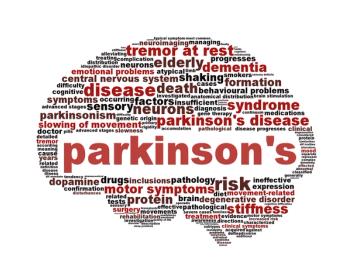
Special Reports


Why do you need to know about Munchausen by Proxy? Answers here.

Substantial progress has been made in the development of etiologic models of intimate partner violence and interventions for individuals who assault their intimate partners. These authors provide details.

What is the future of psychiatric assessment and treatment of mood disorders? The articles in this Special Report explore some important aspects and issues.

An update on the diagnosis, causation, and treatment of chronic depressive problems. The focus is on the recently introduced diagnostic category of persistent depressive disorder.

Here: the history of psychotic depression for the Study of the Pharmacotherapy of Psychotic Depression (STOP-PD), a summary its epidemiology, significance, diagnostic complexity, and treatment, as well as case vignettes.

This article reviews the most recent (after 2010) published guidelines on bipolar depression.

Most, if not all, antidepressants can cause bothersome adverse effects. These are described here along with strategies to help patients cope.

An overview of special coverage on advances in the treatment of alcohol use disorders.

Very few heavy drinkers receive treatment and fewer still are prescribed medications with demonstrated efficacy. Here, a summary of current research, key takeaways, and highlights from a study on topiramate treatment for heavy drinkers by the lead author of that study.

In addition to the approval of novel medications for alcohol use disorders, the past several years have been marked by an emphasis on development, standardization, and dissemination of new behavioral therapies, including computer-based interventions.

There is increasing evidence and support for medications for alcohol use disorders to be used in regular clinical practice, and not to be limited to specialty substance abuse settings. Here, special considerations for pharmacological management.

The topics in this Special Report provide a broad picture of the issues psychiatrists face as they take a clear-eyed look at the opportunities and challenges in the emerging health care system.

Although most major organizations recognize the importance of collaboration, the challenge for psychiatry is how to best integrate different aspects of psychiatric and primary care. Help here.

Psychiatrists are particularly susceptible to burnout because of the nature of their work and the populations they serve. Combat strategies here.

This article reviews the many forms of fee agreement and notes the important factors to consider as well as questions to ask to properly assess and vet what may be best for one’s practice.

Everything you need to know about the MOC process.

An overview of Behavioral Neurology and Neuropsychiatry, a medical specialty committed to better understanding links between neuroscience and behavior and to the care of individuals with neurologically based behavioral disturbances.

The term “CTE” was introduced recently to describe progressive neuropathological changes and diffuse neuropsychiatric symptoms associated with a history of TBI. Here, a clinical overview of TBI and CTE.

Psychiatric comorbidity in epilepsy represents not only a matter of intellectual interest but also an important variable that affects prognosis in terms of morbidity and mortality.

For some patients with Parkinson disease, the neuropsychiatric complications are a greater source of morbidity than the motor dysfunction. This article focuses on the management of psychosis in Parkinson disease.

As with most tests in medicine, the results of computerized neurocognitive tests are not diagnostic, but they are useful adjuncts to the diagnostic process.

The universe of psychiatric ethics has dramatically expanded. Let us boldly go together where psychiatric ethics has never gone before!

Case-based dialogues illustrate some virtues required in psychiatric practice.

As psychiatrists, we have a potentially unique-and powerful-influence in the discussion of public figures. But what professional and ethical obligations should we follow in this role?

Federal law now strongly supports a patient’s right to view his or her psychiatric record on request. Here: a look at the ethical and legal issues.

Psychiatry in China? Up until about a decade ago, that could have been considered an oxymoron. Yet, just as China has modernized and embraced a Chinese form of capitalism, so psychiatry is becoming modernized in a Chinese form of psychiatry.

How will economic development influence management of population aging so that the dignity and rights of older persons are respected and protected, particularly those who are vulnerable because of mental illness, social isolation, or physical debility? Insights here.

It may be difficult for our American and European colleagues to imagine the constraints under which Russian psychiatrists practice. In Russia, treatment of the psychiatric population is at the mercy of government and society.

How prevalent is dependence on amphetamines, cocaine, opioids, and other illicit drugs across the world? What is the associated disease burden? Insights here.